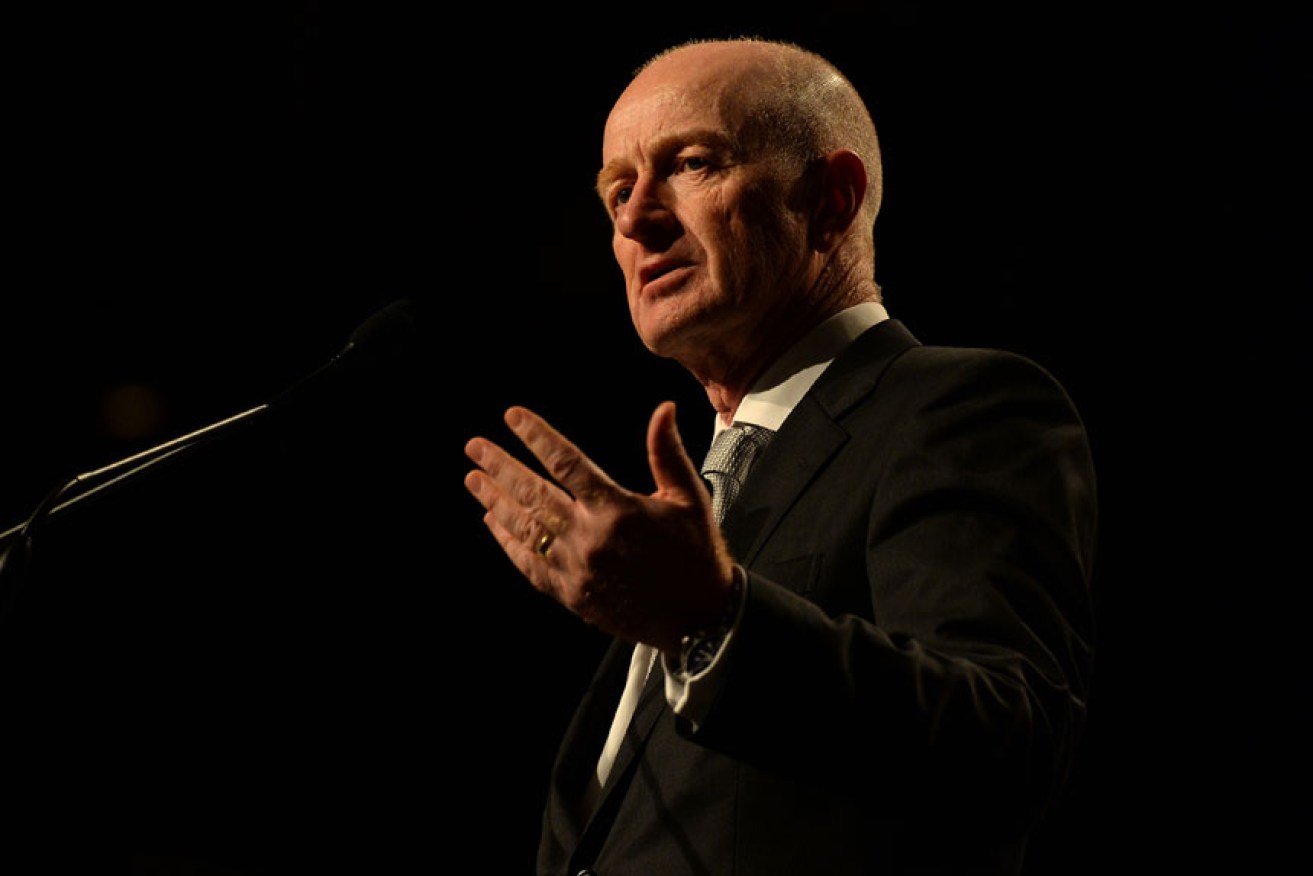RBA warning on house prices

AAP
RBA governor Glenn Stevens has cautioned investors against assuming housing prices will always rise, and that the Australian dollar might not fall.
In a speech to a conference of economists in Hobart on Thursday, the RBA governor downplayed the significance of the central bank’s recent changed description of the Australian dollar.
It had described the exchange rate as “uncomfortably high” but dropped the description as the currency fell earlier in 2014.
There has since been speculation that, with the currency since recovering, the phrase might be resurrected by the RBA.
But after the comments, the dollar dropped from 94.31 US cents at 1100 AEST, when Mr Stevens began speaking, to 93.80 US cents by 1105 AEST on Thursday.
“It hasn’t been, though I don’t regard that to be as significant as many people seem to think it is,” Mr Stevens said.
When judged against current and likely future trends in the terms of trade, and Australia’s still high costs of production relative to those elsewhere in the world, most measurements would say it is overvalued, and not by just a few cents.
He repeated the view that the exchange rate remains high by historical standards and said that some trade-exposed sectors still find it “quite uncomfortable”.
“When judged against current and likely future trends in the terms of trade, and Australia’s still high costs of production relative to those elsewhere in the world, most measurements would say it is overvalued, and not by just a few cents.”
He acknowledged that it was an unusual time, with interest rates near zero in major economies, a factor supporting the Australian dollar in recent years.
“Nonetheless, we think that investors are under-estimating the likelihood of a significant fall in the Australian dollar at some point.”
On housing prices, he said that some recovery after falls from 2010 to 2012 was no particular cause for concern.
But it would be a different matter if there were to be a further run-up in prices combined with “over-confident expectations of continuing gains” and significant increases in household debt.
Growth in the amount of debt owed by households is currently running at six to seven per cent per annum, only slightly above the growth rate of national income, he said.
“It’s hard to mount the soap box to complain about that pace.”








